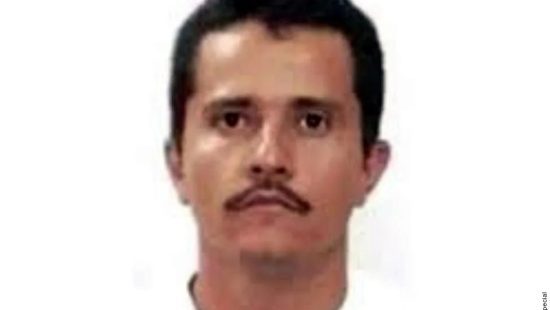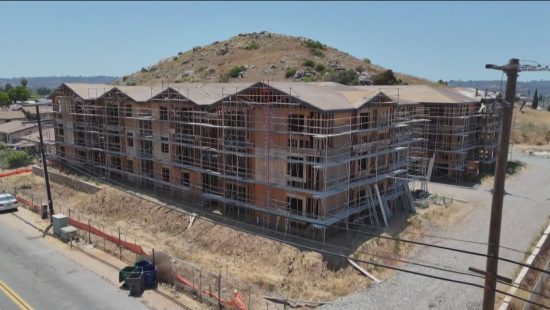Without a clear idea of what lay ahead, Jorge Mettey focused on his studies and… his plans with Bianca. In university, he met young filmmakers and intellectuals who later became influential figures in the country. At the age of 19, his friends offered him a job at the Mexican television system, RTC.
“I couldn’t believe it. I had no experience, didn’t know exactly what to do, but I had connections. I saw myself simply as I was, a university student with a girlfriend in Puebla, that simple,” Jorge Mettey says.
Mexican media was going through a turbulent time, with a struggle between the private and public sectors, involving Televisa, the largest private company, and the government. In the midst of this environment, Jorge Mettey was appointed Head of the Department of Analysis and Television Supervision, essentially a censorship role, in simpler words.
“I was around 22 years old, dealing with Televisa’s big shots, attending their meetings, discussing legal matters. I had been told I would stay in the position for only three months, and then they would find something else for me. I stayed for several years. Every Wednesday, I met with one of their top executives, Victor Hugo O’Farril, to discuss his projects and their approval. These business meetings gradually turned into a different kind of relationship,” he recalls.
During this time, the government had censored the telenovela “Quinceañera,” starring Adela Noriega. It was a crucial project that later became one of the most significant successes in Mexican television. In one of his meetings with O’Farrill, young Jorge Mettey provided the solution to lift the ‘ban’ on the show and allowed its transmission. This incident solidified his position in his work and his relationships with the company and individuals.
“During my tenure in the censorship department, I gained an understanding of what people want to see, what can be shown, and what is actually seen. The judgment I acquired there helped me a lot in the years that followed,” Mettey says. “It made me hypersensitive to social movements, to the social impact of broadcasting,” he adds.
When his parents passed away, his girlfriend Bianca had taken on additional responsibilities in her family. She had affirmed Jorge that she wouldn’t marry until all her siblings had. She would assume that responsibility. Around that time, she went to Los Angeles to handle some business her father had left behind; it would be a long year.
“I already had the engagement ring; I kept it, asking her, trying it on. I waited for the perfect moment to give it to her. When she returned to Mexico, she surprised me; she agreed to marry me,” he says, happily.
His time at RTC had ended; he had offers from Televisa that he declined. He didn’t want to enter a work environment that was very toxic, filled with drugs, alcohol, and late nights.
“I had pressure from O’Farrill; he asked me once, twice, three times. I refused, but he didn’t give up. In a conversation with my wife, she proposed that we move to Los Angeles. The idea was for a year. I immediately said yes; I had the perfect excuse for O’Farrill. That year turned into several decades,” he adds.
Dreams enveloped him as he arrived in Los Angeles. He would finally dedicate himself full-time to what he had always wanted: the world of news on television. He first approached a company called Univisa but found nothing. He realized that if he wanted to learn and gain experience in that field, he had to start from the bottom, from the streets. He researched every radio station and found a job at one, Radio Kali, spending his first year doing all sorts of news. His apprenticeship had begun.
In the so-called “entrevistas banqueteras”, he had met another reporter who contacted him to offer an opportunity at Telemundo, as a writer. His initial experiences were not very good; he was fired once, twice, and three times until a new news director, Rolando Santos, arrived and he became his right-hand man.
“There we had the first experience of ‘A su lado,’ but it was different; its focus was more commercial. I didn’t agree; I already saw its social potential. We became the most-watched newscast, but there were changes; people left, and I resigned,” he says.
Soon after, he embarked on his journey at Univision. A new administration came to the company, and Rolando Santos recommended him to take over the News Director position in Dallas.
“I was clear that the social approach was the most important. The problem was the resources. My competition was not the other Spanish-language media; it was the English-language networks. I asked myself, how do we compete? I had to be more creative, make alliances, focus on the relevant,” he says.
His experience in Dallas was successful, and he repeated that success in Phoenix. He formed an alliance with NBC where both networks doubled their success. The ‘A su lado’ segment was reactivated with tremendous impact.
“I came to understand that everything boils down to the basics,” he says.
And then came the opportunity to arrive in Los Angeles, the number one Latino market in the country.
“When I arrived, I already had three conditions that I had negotiated with the company. One, obviously the financial aspect; another, the community outreach department, we had to be in the community, expand connections, and third, remove certain people who had ‘taken over’ the channel,” he recalls.
When he proposed starting ‘A su lado,’ they told him it wasn’t possible. They gave him several excuses. Technical capacity was one. He met with union leader Ben Monterroso to negotiate borrowing his team and facilities to make it happen.
“They weren’t going to tell me no; I was going to find a way to do it. I asked the staff what the most important issue was at that moment, and they told me immigration. So, I got 90 lawyers to answer callers’ questions. In my team, many didn’t believe in the project; it seemed as if they were sabotaging it. It was such a success that we exceeded expectations,” he says. “I went out to the street to calm down a bit and walk. I saw people with their phones in front of the building, many of them. I approached them, and they told me they had come there to get a connection; it was impossible for them at home. All of this happened on a Thursday; we were ecstatic,” he adds.
The following Monday, representatives from the Police and Fire Department visited Univision, they complained; they couldn’t organize an event of that nature; they had overloaded the phone lines. Around 490,000 calls were received that day.
“So, we continued, a different topic each month. The second time, we had 370,000 calls, then 400,000, and so on. We had triumphed. Telemundo had surpassed Univision with a segment called La Lista, where they revealed names of people who owed money, and the audience was crazy about it. ‘A su lado’ outperformed that project,” he says.
His consolidation at Univision was not easy. He had to face a newsroom with many opponents, individuals who believed they were untouchable, following an old philosophy of journalism. Jorge Mettey had already negotiated the transformation of his team.
“I still believe that the medium is the message. They asked me if I was willing to take on the responsibility of firing a host with over 27 years on air; I said yes. I already had Rolando Nichols with me, a very talented young man, he knew everything. I told him to be ready, just not to mention his age; he was around twenty years old,” he says, laughing.
He started implementing his newsroom and his projects, many of them with a significant impact on the community. One of them was “Va por… (someone),” where members of the audience helped others every week.
“I went to the sales department and told them, ‘we need a camioneta.’ In 30 minutes, we had a sponsor,” he adds.
Then came his flagship project, his ‘Ya es Hora Ciudadanía’ (It’s Time for Citizenship) campaign.
“I asked them for the number of Latinos becoming citizens annually; it was just over a hundred thousand. I told them I wanted a million new citizens with this campaign. I made INS (the Immigration department) nervous; they told me they didn’t have the necessary resources. I told them it was one of two stories: either we told the story of an office without resources or an office that had processed a record number of new citizens. In the end, we registered 1.4 million new citizens. A complete success,” he shares enthusiastically.
Jorge Mettey had become an ‘almighty’ figure in the world of media. Whatever he wanted to do, he could achieve.
“I have a reputation for being very difficult to deal with. The thing is, for me, there are no middle terms; it’s black or white, not gray. I don’t compromise my opinion. I was very aware of my level of influence, but I am married to a woman who would never have allowed me to stray from what’s right. There was never any abuse of power or influence. What drives me is the connection with people. Everyone claims the ‘March of the Million.’ But all those who say that, I never saw them at the previous meetings,” he adds.
It would be countless to write down all his anecdotes and memories; he lived through years and created a media outlet that has been impossible to match.
“I am convinced that I proved with actions that things can be done. It seems to me that the effort of an entire group of people goes unnoticed, unrecorded. I don’t care about recognition; I acknowledge there is a very talented group that worked alongside me to make this happen. But that experience should be in a textbook,” he comments.
For Jorge Mettey, the drastic change in the industry occurred when financial interest groups entered to control these media outlets. Their needs were different.
“The connection with the community was lost, local coverage was lost. I don’t watch local news anymore. It gives me heartburn; I see an industry that now prioritizes aesthetics,” he criticizes.
Jorge Mettey left Univision to briefly join another project called Mundo Fox, where he stayed for a little over two years. Since then, he has been involved in consulting and launching other projects.
“Right now, I am working on a digital platform that we hope to launch in January. It’s almost ready. But I can tell you I have never been bored; I am a hyperactive man. ‘Confieso que he vivido’,” Jorge Mettey says.








